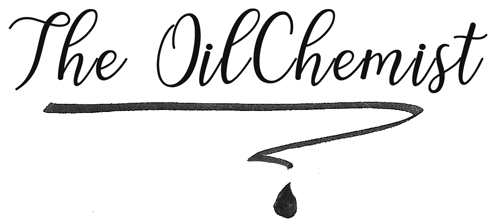
Bergamot is a citrus fruit that has been used for centuries for its medicinal properties and distinctive flavour. It’s no wonder why this fruit is gaining popularity in the world of aromatherapy, skincare, and culinary arts. But what exactly is bergamot and what makes it so special?
In this comprehensive guide, we will unveil the mysteries of bergamot and explore its various uses and benefits. From its origins in Italy to its use in perfumes, teas, and even as a natural remedy for anxiety and depression, we will dive deep into the world of bergamot.
Whether you’re a curious enthusiast looking to expand your knowledge or a professional seeking to incorporate bergamot into your craft, this guide will provide you with everything you need to know about this versatile and fascinating fruit. So sit back, relax, and let’s explore the wonders of bergamot together.
The History of Bergamot
Bergamot has a long and rich history that dates back centuries. The fruit was first discovered in the town of Bergamo, Italy, where it got its name. Bergamot oil was first used in perfumes in the 18th century, and it quickly became popular due to its unique scent. Today, Italy is still the primary producer of Bergamot oil, with the Calabria region being the most famous.
In addition to its use in perfumes, Bergamot has also been used for its medicinal properties for centuries. In traditional Chinese medicine, Bergamot was used to help with digestion, reduce inflammation, and treat skin conditions. It was also used as a natural remedy for fever and headaches.
Bergamot is one of the essential oils which has had clinical trials and has been is most often used in hospice and hospital situations by clinical aromatherapists for situational stress and high anxiety.
The Health Benefits of Bergamot
Bergamot is packed with antioxidants, which help to protect the body against damage from free radicals. It’s also rich in vitamins, particularly vitamin C, which helps to support a healthy immune system. Bergamot has been shown to have a range of health benefits, including:
Reducing Cholesterol
Studies have shown that Bergamot can help to reduce levels of LDL cholesterol, which is the “bad” type of cholesterol that can contribute to heart disease. Bergamot works by blocking an enzyme that’s involved in cholesterol production.
Reducing Anxiety and Stress
Bergamot has a calming effect on the body, and it’s been shown to help reduce anxiety and stress levels. It’s often used in aromatherapy for this reason, and it’s also been shown to help improve mood and reduce symptoms of depression.
Improving Skin Health
Bergamot oil has antiseptic and antibacterial properties, which means it can help to keep the skin clean and free from bacteria. It’s often used in skincare products, particularly those for oily or acne-prone skin.
Bergamot in Aromatherapy
Bergamot is one of the most popular essential oils used in aromatherapy. It has a fresh, uplifting scent that’s both calming and energising, making it the perfect oil to use when you need to reduce stress and anxiety. Bergamot oil is often used in diffusers, candles, and massage oils, and it’s also a popular ingredient in perfumes.
How to Use Bergamot Oil in Aromatherapy
There are many ways to use Bergamot oil in aromatherapy. One of the easiest ways is to add a few drops to a diffuser or vapouriser. You can also add a few drops to a warm bath, or mix it with a carrier oil like coconut or jojoba oil and use it as a massage oil.
Precautions When Using Bergamot Oil
One of the most important things to know about bergamot oil is that it can cause photosensitivity. This means that it can make your skin more sensitive to sunlight. If you are using bergamot oil topically, it is important to avoid direct sunlight for at least 24 hours after use.
If you are concerned about photosensitivity, you can purchase bergamot oil that has had the furocoumarin removed. Furocoumarin is the component in bergamot oil that causes photosensitivity. Bergamot oil that has had the furocoumarin removed is labeled FCF, which stands for “furocoumarin-free.”
Here are some additional tips for using bergamot oil safely:
- Always dilute bergamot oil before using it topically.
- Avoid using bergamot oil on broken or irritated skin.
- Do not use bergamot oil near the eyes or genitals.
- If you are pregnant or breastfeeding, it is best to avoid using bergamot oil.
If you have any concerns about using bergamot oil, it is always best to talk to your doctor or a qualified aromatherapist.
Learn more about bergamot and aromatherapy here.
Bergamot in Cooking and Baking
Bergamot is a popular ingredient in many culinary dishes, particularly in Italian cuisine. It’s often used to flavour desserts and baked goods, as well as in teas and cocktails. Bergamot has a distinct flavour that’s both sweet and tart, making it a versatile ingredient that can be used in a variety of dishes.
How to Use Bergamot in Cooking and Baking
Bergamot can be used in both sweet and savoury dishes. In desserts, it’s often used to flavour cakes, cookies, and custards. It’s also a popular ingredient in tea blends, particularly Earl Grey tea. In savoury dishes, Bergamot can be used to add flavour to sauces, marinades, and dressings.
Where to Buy Bergamot for Cooking
You can find Bergamot extract and oil at most specialty food stores, as well as online. When buying Bergamot for cooking, it’s important to choose a high-quality product that’s made from natural ingredients.
How to Use Bergamot Essential Oil
Bergamot essential oil is a highly concentrated form of Bergamot oil that’s used in a variety of products, including perfumes, skincare, and natural remedies. It’s important to use Bergamot essential oil carefully, as it’s highly potent and can cause skin irritation if not diluted properly.
Diluting Bergamot Essential Oil
When using Bergamot essential oil, it’s important to dilute it properly. You can dilute Bergamot oil by mixing it with a carrier oil like coconut or jojoba oil. A good rule of thumb is to use 1-2 drops of Bergamot oil for every teaspoon of carrier oil.
Using Bergamot Essential Oil for Natural Remedies
Bergamot essential oil is often used in natural remedies to help with a range of issues, including anxiety, headaches, and digestive problems. To use Bergamot oil for natural remedies, mix it with a carrier oil and apply it topically to the affected area. You can also add a few drops to a warm bath or use it in a diffuser.
Bergamot Tea and Its Benefits
Bergamot tea, also known as Earl Grey tea, is a popular tea blend that’s flavoured with Bergamot oil. It has a unique flavor that’s both floral and citrusy, making it a popular choice for tea lovers. In addition to its delicious taste, Bergamot tea also has a range of health benefits.
Health Benefits of Bergamot Tea
Bergamot tea is packed with antioxidants, which help to protect the body against damage from free radicals. It’s also been shown to have a range of health benefits, including:
– Reducing Anxiety and Stress
– Improving Digestion
– Boosting Immune System
How to Make Bergamot Tea
To make Bergamot tea, simply steep a tea bag or loose tea leaves in hot water for 3-5 minutes. You can also add a slice of lemon or honey to enhance the flavour.
Bergamot Skincare Products
Bergamot oil is a popular ingredient in skincare products, particularly those for oily or acne-prone skin. It has antiseptic and antibacterial properties that help to keep the skin clean and free from bacteria. Bergamot oil is often used in facial cleansers, toners, and moisturisers, as well as in soaps and body washes.
How to Use Bergamot Skincare Products
To use Bergamot skincare products, simply apply them to your skin as you would any other skincare product. It’s important to choose products that are made from natural ingredients and free from harsh chemicals.
Precautions When Using Bergamot Skincare Products
Bergamot oil can cause skin irritation in some people, particularly those with sensitive skin. If you experience any redness, itching, or swelling after using Bergamot skincare products, discontinue use immediately.
Bergamot and Mental Health
Bergamot has a calming and uplifting effect on the body, making it a popular choice for those looking to reduce anxiety and stress levels. It’s often used in aromatherapy for this reason, and it’s also been shown to help improve mood and reduce symptoms of depression.
How to Use Bergamot for Mental Health
To use Bergamot for mental health, you can add a few drops of Bergamot oil to a diffuser or vapourizer, or mix it with a carrier oil and apply it topically to the skin. You can also add a few drops to a warm bath or use it in a massage oil.
Precautions When Using Bergamot for Mental Health
While Bergamot is generally safe to use, it’s important to take precautions when using it for mental health. Bergamot oil can cause photosensitivity, which means it can make your skin more sensitive to sunlight. If you’re using Bergamot oil topically, it’s important to avoid direct sunlight for at least 24 hours after use.
Where to Buy Bergamot Products
You can find Bergamot products at most health food stores, as well as online. When buying Bergamot products, it’s important to choose a high-quality product that’s made from natural ingredients. Look for products that are free from harsh chemicals and additives.
Conclusion
Bergamot is a highly versatile fruit that’s packed with health benefits. It’s been used for centuries for its medicinal properties and unique flavour, and it’s now gaining popularity in the world of aromatherapy, skincare, and culinary arts. Whether you’re looking to reduce stress and anxiety levels, improve your skin health, or add a unique flavour to your cooking, Bergamot has something to offer. So why not unlock the mysteries of this fascinating fruit and start incorporating it into your daily routine?
